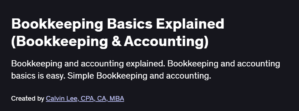What you will learn in Financial Modeling for Startups & Small Businesses Course
- Learners will understand the core concepts of financial modeling, including how to forecast revenues, expenses, and cash flows.
- The course covers how to create detailed income statements, balance sheets, and cash flow statements for startups and small businesses.
- Students will explore how to use financial models to make critical business decisions, such as pricing strategies, fundraising, and cost management.
The course teaches how to conduct scenario analysis to assess the impact of various business decisions and market conditions.
Learners will gain insights into the use of Excel tools and techniques for building robust and flexible financial models.
Program Overview
Introduction to Financial Modeling
⏳ 2-4 weeks
Understand the basics of financial modeling and how it helps startups and small businesses plan for the future.
Learn the purpose of financial modeling, including how it aids in budgeting, forecasting, and valuation.
Study the key components of financial models: income statement, balance sheet, and cash flow statement.
Building Your First Financial Model
⏳ 4-6 weeks
- Learn how to build a simple financial model in Excel, including the setup of financial statements and basic calculations.
- Explore how to estimate revenue projections and calculate operating costs.
- Study how to model cash flows, including working capital, capital expenditures, and financing activities.
Forecasting & Budgeting
⏳ 4-6 weeks
- Learn how to create revenue and expense forecasts based on market data, historical performance, and growth assumptions.
- Study how to model different business scenarios and project future income, costs, and profits.
- Understand how to develop a comprehensive budget that aligns with business goals and financial capabilities.
Scenario & Sensitivity Analysis
⏳ 6-8 weeks
- Learn how to run sensitivity analysis to assess how changes in key assumptions (such as sales growth or cost structure) impact your financial model.
- Study how to create different business scenarios (optimistic, realistic, and pessimistic) to help you prepare for uncertainties and manage risks.
- Explore how to adjust your financial model to account for changing market conditions and business dynamics.
Valuation for Startups & Small Businesses
⏳6-8 weeks
Understand the basics of business valuation and how financial models are used to estimate the value of a startup or small business.
Learn how to apply valuation methods such as discounted cash flow (DCF) analysis and market comparables to your financial model.
Study how to create financial projections that help in securing funding and investment for your startup or small business.
Raising Capital & Investor Presentations
⏳ 4-6 weeks
- Learn how to use your financial model to attract investors and secure funding for your business.
- Study how to present your financial model to investors, highlighting key assumptions, projections, and potential returns.
- Explore the best practices for building a pitch deck and delivering a compelling financial story to potential investors.
Final Project: Build a Complete Financial Model for Your Startup
⏳6-8 weeks
Apply the concepts learned throughout the course to build a comprehensive financial model for your own startup or small business.
Develop forecasts, cash flow projections, and scenarios to reflect your business’s financial outlook.
Present your final financial model and receive feedback for improvement, simulating the process of preparing for real-world investment discussions.
Get certificate
Job Outlook
Financial modeling skills are in high demand across industries, especially in startups, small businesses, venture capital, and consulting.
Entry-level financial analysts, modelers, and consultants typically earn between $50K to $75K, with experienced professionals making $100K+.
Entrepreneurs and small business owners benefit from financial modeling by improving their decision-making and attracting investment.
Specification: Financial Modeling for Startups & Small Businesses
|





